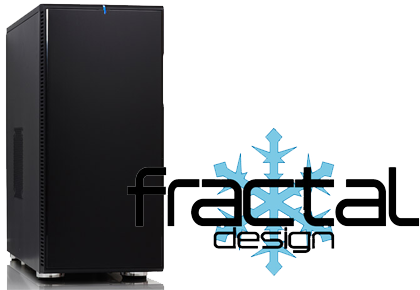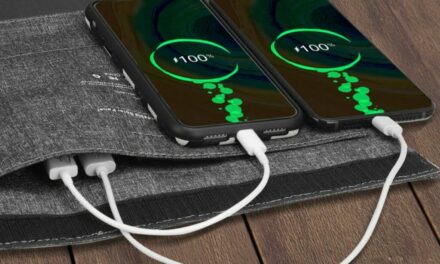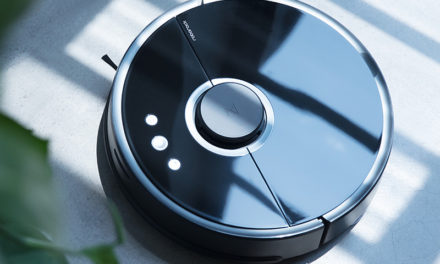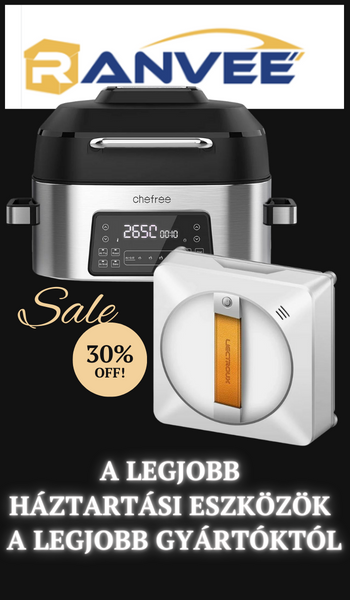
Introducing: Houses from the North, here's Fractal Design!

Although our article is about the houses of the company, which are really the most interesting products of the manufacturer anyway, we can't go without the other products without a word.
We find products in four main topics. These are accessories, fans, computer cases and power supplies, respectively. As it will become clear, these products are kind of mandatory “bad” that are almost inevitable with the sale of houses.
The accessories include three products that can be used for houses. These are a noise reduction kit and two USB 3.0 upgrade packages that can be used to conjure USB 3.0 outputs at the front of the enclosures. There’s also a fourth product here, it’s a simple yet eye-catching keyboard that already gives you a little insight into what quality and looks you can expect from other products. Among the products we also find a “card” called Power Splitter, which, as its name suggests, is capable of distributing voltage, making more of a connector in Hungarian.
We can’t write much about fans because we can’t try them. The choice of color was good, though. The manufacturer's package includes all common sizes from 40 to 140 millimeters.
The next group belongs to the houses. Fractal Design products use an interesting method to differentiate houses. There are four brands, ARC, Array, Core, and Define, respectively. The order in this case is determined by the size. We have now brought two houses for a more thorough presentation. One from the Core family is the Core 1000, the other from the Define family is the Define R3 Black Pearl. The Core family is the family of towers, the Define family of towers, so it is clear that the former is the cheaper category and the latter the more expensive category.
The last product range is power supplies. On the merits, we cannot comment on these either. We can be sure of two things. One is that the manufacturer prefers black, the other is that the power of the units ranges from 400 to 1000 watts, and each power supply has been rated 80+.
Now that we’ve peeked into the Fractal Design products with the help of the pictures, it’s time to move on and take a look at the smaller cottage, the Core 1000!
I’m a bit like Fractal Design houses like a young dad who doesn’t want to know the gender of his first child before giving birth. I can easily avoid gender in the houses, because there isn't, but I don't look at the price of the houses directly, let it be a surprise to me as well.
So, while the Core 1000 is obviously the entry level to the manufacturer, now I have no idea if that’s true for its price. What is certain is that the packaging is a simple cardboard box, nothing kitty. On the other hand, the house that comes out of the box is more than interesting.
At first glance, nothing strange, rather small size, matte finish, lattice front panel all the way. The first oddity is that we can't find the power button in the usual places. In the case of truss-fronted houses, this usually gets on the upper edge of the first coffee, but here in the present case we find nothing. After a little rotation, we realize that the controls and connectors are on the right outer edge of the coffee, but also on the lower half of it. At first, we think the solution is good, since the house is on the table and we are right-handed. Then we think about what happens if the machine isn’t on the table, plus it’s going to be used by a left-handed person… I won’t insist anymore. Extra in all, the display LEDs are also under the connectors, which essentially makes them completely unnecessary. We certainly won’t see their light unless there’s something to bounce off.
As we have indicated above, the front is absolutely not closed, and this is a dear moment for our hearts. True, we don’t build office machines that we would otherwise use the Core 1000 for. What do we mean by that? The fact that in a home power plant, where good ventilation is important may be justified such a front panel is not disputed, but in an office preferring only to collect dust inside the house. Speaking of the front panel, it should be noted that the lower panel also hides a 12-centimeter, white-bladed fan.
Unscrew the side cover quickly, let's see what we find inside! We first looked into the location of the optical drives. You can see that there is room for two units, and you can put a prehistoric floppy drive or many card readers in one at the bottom. For this, the accessories include a perforated front panel with a smaller opening.
Although the interior of the cottage is essentially empty, I have yet to draw attention to a very interesting solution. I was surprised to find that the frame holding the hard drives could be unscrewed. I was surprised because this bastard was typical of more expensive houses so far. Then it turned out that the surprise also has degrees, because when I realized that the frame isn’t even a frame, just a sheet of metal, well, I was really surprised. Sure, hard drives are only screwed on one side. We could say that this is a silly solution, but it is not so much, because if we do not throw the machine, one-sided screwing is plenty.
A much more interesting question is why it’s good for us to have a fastener frame plate can be unscrewed. Is it easier to screw in the drives when the disk is in place or when it is on the desktop? We leave it to our readers to decide this issue.
With our unanimous opinion about the house, we are not tiring anyone now, this part stays on the last page. Now let's look at the more expensive nook!
I honestly admit, I was a little saddened by the house shown on the previous page, I was expecting a little more. True, I still don’t know the price, but even then. Because of this, I reached for the bigger box, which hid the Define R3, a little scared.
It can already be seen on the packaging that this house will not be the entrance level. Lifting the box, we feel the crowd, which promises that some material has also been packed into the cottage. We hope the box was not heavy with half bricks, but with metal.
Taking the house out of the box, I swallowed hard, I immediately saw that I would like it, and of course it did. The first thing that came to my mind was that this house is so "antec". Antec houses are not available from our partners, but we used to get them many times from the now defunct Senerit Kft., and we always liked them.
Well, the quality of the Fractal Design Define R3 is reminiscent of the products of the more renowned manufacturer, and that is definitely praise!
We have to start with the outside! The metal parts of the house are thick and rigid. The paintwork is the matt surface familiar from the Core 1000. The front panel, on the other hand, is glossy and black, which contrasts well with the rest of the house.
The controls were finally located in the well-used place, at the top of the front panel coffee. Audio output and input, power button and three USB connectors, one of which is USB 3.0 standard.
With the exception of the side of the motherboard tray, there is a fan slot everywhere and a 12-centimeter air fan can be installed everywhere. Behind the front panel, on the back panel and on the bottom plate, there are one, and on the cover panel there are two vent slots, in addition, a unit is screwed into the front panel and the back panel.
The house is bottom-fed, which peoples usually love because of its easier installation. In one case, we do not prefer this solution if water cooling is installed in the machine, because in this case, in the event of a fault, the water always drips into the feed in the worst possible place. In addition, the Define R3 is prepared to receive water cooling, with two rubber holes in the top of the back panel through which the pipes can be led out to the external heat sink.
We were heated by curiosity, so we quickly unscrewed the side panel. What we found inside did not disappoint. Let’s start by saying that the side panels and top plate are completely covered with sound-absorbing material. Although we don’t come across any great extras, it seems at first glance that the most important consideration in designing the house was ease of installation.
Hard drives can be screwed onto white trays so that no less than eight storage devices can be installed. We can use “only” two pieces of an optical drive, but unless we make a living from DVD copying, we don’t usually need more.
Installation is facilitated by the fact that there are five openings in the motherboard tray where the wires can be hidden or extended. The edges of the plates, as is already mandatory in a house of this quality, are folded back so as not to cut, and in some places even have a rubber edging.
The Define R3 is a really convincing house!
Sum it!
Honestly, we expected a lot from Fractal Design. Scandinavian design is close to our hearts, the blend of simplicity and usability is somehow much more European than the over-designed products of some Far Eastern manufacturers. In this direction belongs to furniture IKEA and works along similar principles in architecture, interior design to the minimum.
Unfortunately, considering the above principles, the Core 1000 was a big disappointment. Well, not because of its quality, as it provided just as much as an entry-level house to provide fit, thinner sheets, but an acceptable exterior. It was much more confusing that the designer himself did not seem to know what he wanted to get out of the house. It was as if he had been told to design a cheap house that was different from competing products.
What became of this? A house whose purpose we do not understand. We don't see the point of the lattice front panel, nor the "hidden" controls on the right side, let's not talk about the indicator LEDs. The one-sided screw-on hard drive solution and the removable hard drive bay are also interesting. The well-thought-out Scandinavian simplicity does not suit this house, we can say that less would have been more.
Then came the Define R3, which took us off our feet. Okay, let’s sign, we didn’t find a single salivatingly exciting detail, but we did find exactly the simple practicality we expected for the Fractal Design name and the Swedish design.
Quality materials, easy installation, extremely good ventilation and silence. These are the main features. Noise reduction on sidewalls and roof, rubber mounts on all hard drive trays and under the power supply. The look is not ordinary either, the matte painting vs. brighter front, matte paint vs. chrome legs contrast quality suggests.
Our assessment is mixed based on the above. The quality of the houses is perfectly adequate, they are full members of the entrance and upper-middle categories. In our opinion, the Core 1000 wants to be a little too much, but the Define R3 is just enough, they have hit what is still needed and what is just to quench our hunger. It is characterized by simple but good solutions. The level of quality doesn’t kick a person in the chest at first, but it’s worth looking at the door hinges, for example, to see if they really gave the feeling here!
Now come the prices!
The price of the Fractal Design Core 1000 is below HUF 10 gross, while the Define R3 is at a gross height of HUF 31-32 thousand in various stores. These prices are neither much nor small in terms of quality, we have such a well-felt feeling. We don’t know if it’s the merit of the manufacturer or distributor, in any case no big bucks were fired at him. True, in the domestic market this price of 30 thousand is already high, there are plenty of showy crap for half that.
In this article, with a good heart only the Fractal Design Define R3 we can only reward a house, but it deserves to be liked and the editorial offer also plecsnit!
Fractal Design houses were provided by Kelly-Tech Kft. For the article, thanks for that!
Pages: 1 2















